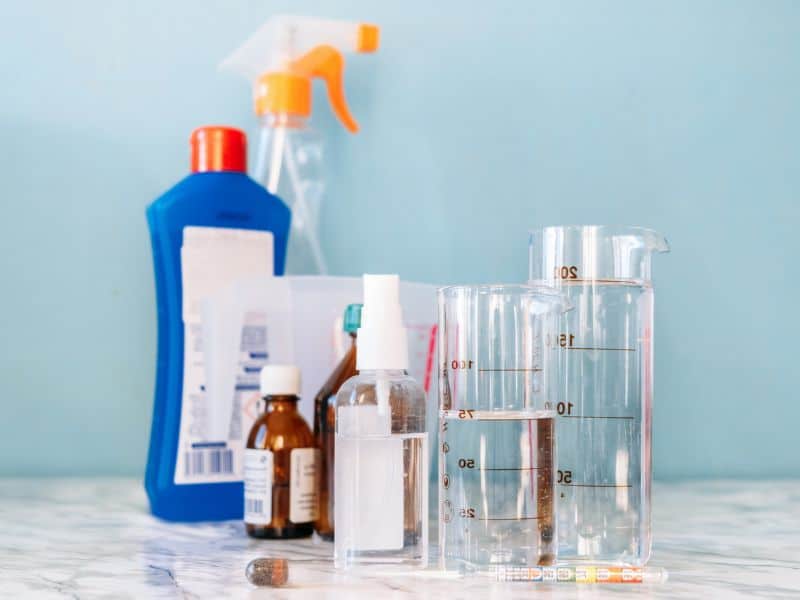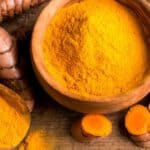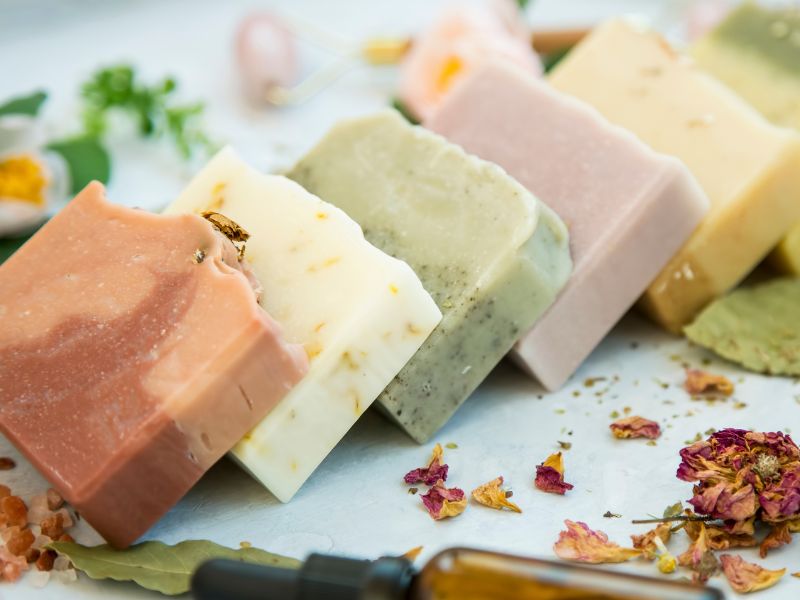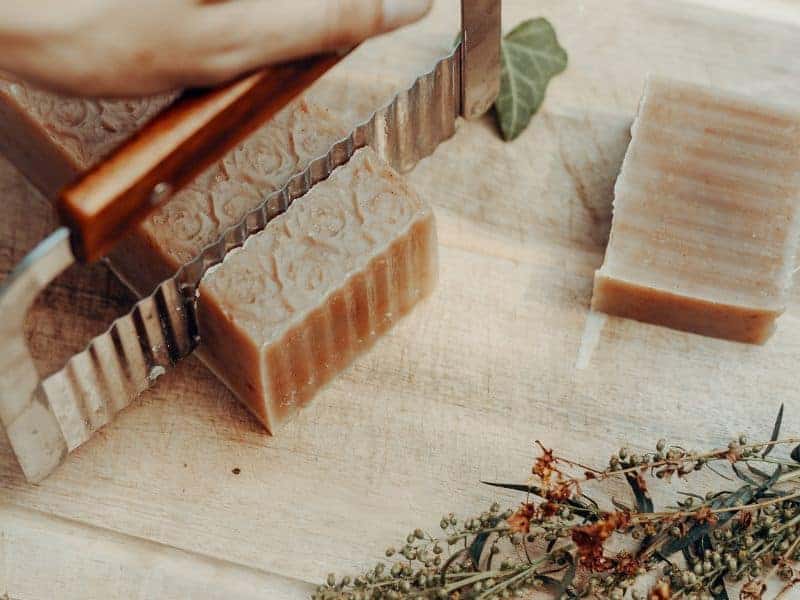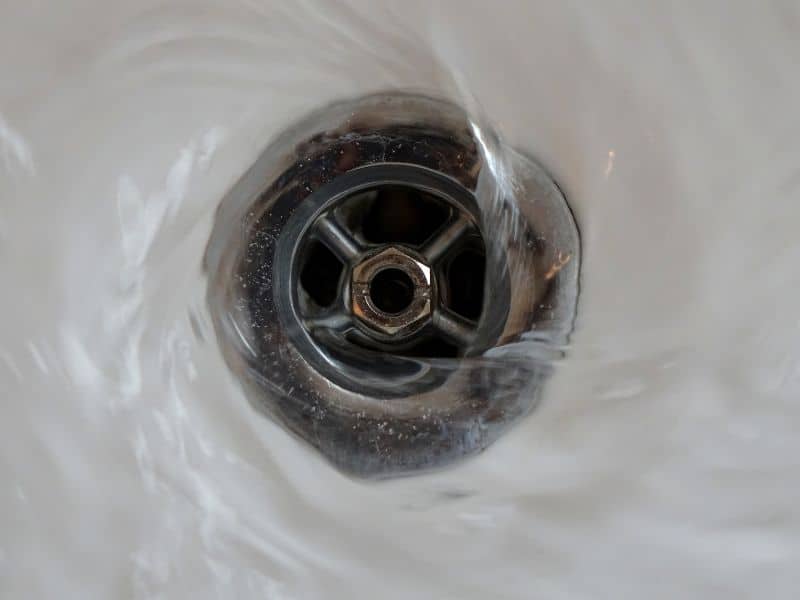One ingredient often used in the soap-making process is alcohol. But why do we use alcohol in soap making, and what benefits does it offer? We will explore the different types of alcohol commonly used in soap making, such as isopropyl and ethyl alcohol, and why they are used in soap making.
Alcohol is used in soap to remove surface bubbles, prevent soda ash, help melt and pour layers stick together, and for dispersing colorants. In addition, alcohol can help scent retention, and speed up trace time in cold-process soap, resulting in a more appealing final product.
The most popular types of alcohol used in soap making are isopropyl and ethyl alcohols.
Isopropyl alcohol, also known as rubbing alcohol, is a colorless, flammable chemical compound with a strong odor.
It evaporates quickly when exposed to air and is commonly used for antiseptic purposes. Let’s take a closer look at these alcohols and what you should use in soap making.
Types of Alcohol Used in Soap Making
Isopropyl alcohol
Isopropyl alcohol, commonly known as rubbing alcohol, is widely used in soap making. This versatile alcohol is available in most drugstores and usually comes in concentrations of 70% or 91%.
Isopropyl alcohol is an effective cleaning agent, making it ideal for sanitizing your soap-making equipment and work surfaces. It also works well to prevent soda ash formation on the surface of cold process soaps.
Ethyl alcohol
Ethyl alcohol, or ethanol, is another type of alcohol favored by soap makers. While it’s the same alcohol found in alcoholic beverages, it’s denatured, rendering it unfit for consumption.
Often sold as “denatured alcohol” in hardware stores, it’s a powerful solvent that efficiently dissolves colorants and fragrances, ensuring a smooth, even distribution in the soap batter.
Benefits of using each type
Isopropyl and ethyl alcohol each offer unique advantages in soap making. Isopropyl alcohol excels in cleaning tools and surfaces, as well as combating soda ash on finished soap bars, leaving them with a smooth and polished appearance.
Ethyl alcohol, on the other hand, is ideal for dissolving colorants and fragrances, allowing for a consistent and vibrant color and scent throughout your soap.
Should I use Isopropyl alcohol or Ethyl alcohol?
Isopropyl alcohol and ethyl alcohol both have benefits and drawbacks when it comes to soap making and their uses when making different varieties of soap.
Choose isopropyl alcohol for versatility, easy accessibility, and preventing soda ash. Opt for ethyl alcohol for efficiently blending colorants and fragrances, ensuring a smooth, even distribution in the soap. Consider your specific soap-making needs to make the right choice.
Ultimately, it comes down to personal preference. Both alcohols can be used in the same way for similar results. It’s important to remember to use them safely and responsibly for the best results.
Alcohol’s Role in Soap Making Process
When should I use alcohol in soap making?
Incorporate alcohol at various stages of soap making, depending on the method and desired results. Use it to blend colorants, prevent soda ash, or even speed up the saponification process.
Blending in ingredients
Alcohol helps to seamlessly blend ingredients such as colorants and fragrances into the soap batter.
By dissolving these additives, it ensures a smooth and even distribution, ultimately resulting in a more visually appealing and aromatic final product.
Breaking down oils and fats
Alcohol plays a crucial role in breaking down oils and fats, allowing them to combine with water.
This emulsification process is essential for creating soap, as it enables the oil and water molecules to bond and form a stable mixture.
Creating a smoother soap mixture
Introducing alcohol to your soap mixture can yield a smoother and more manageable consistency.
This is particularly helpful when working with intricate designs or when you need to pour the soap into detailed molds, as it ensures a cleaner and more precise outcome.
Speeding up trace time
In the cold process soap making method, alcohol can expedite the trace time. This means your soap batter will thicken more quickly, allowing you to proceed with your design or simply complete the project faster, ultimately saving you time and effort.
Benefits of Alcohol in Soap
Improved lather and texture
Incorporating alcohol into your soap recipe can significantly improve its lather and texture. Alcohol helps to create a more luxurious, bubbly lather that feels smooth and creamy on the skin.
The addition of alcohol can also result in a more uniform and consistent texture throughout the soap, making it more visually appealing and enjoyable to use.
Enhanced scent retention
Alcohol is an excellent carrier for fragrances, ensuring that the scent remains vibrant and long-lasting in your soap. By dissolving the fragrance oil into the alcohol, it allows for a more even distribution of the scent throughout the soap, preventing it from fading or becoming uneven over time.
This results in a more aromatic and pleasing experience for the user.
Longer shelf life
Alcohol can extend the shelf life of your soap by acting as a preservative. Its antimicrobial properties help prevent the growth of bacteria, mold, and other microorganisms that could spoil your soap.
The longer shelf life means your soap will remain fresh and usable for a more extended period, reducing waste and ensuring that your hard work doesn’t go to waste.
Evaporation
One of the benefits of using alcohol in soap making is that it evaporates during the curing process. This means that it doesn’t leave any residue or affect the final soap’s pH levels.
The evaporation of alcohol contributes to a more stable, harder bar of soap that lasts longer.
Safety Precautions When Using Alcohol
Proper ventilation
When working with alcohol in soap making, it’s crucial to ensure proper ventilation. Alcohol fumes can be hazardous when inhaled, causing respiratory irritation, headaches, or dizziness.
Make sure to work in a well-ventilated area, such as an open room or outdoor space, to minimize the risk of inhaling harmful fumes.
Using protective gear
Wearing appropriate protective gear is essential when handling alcohol in soap making. Alcohol can be flammable, and it can cause irritation if it comes into contact with your skin or eyes.
Make sure to wear gloves, goggles, and a long-sleeved shirt to protect your skin and eyes from potential irritation or injury.
Correct storage methods
Proper storage of alcohol is vital for both safety and preserving its quality. Store alcohol in a cool, dark place away from heat sources or open flames to prevent accidental combustion.
Additionally, keep the alcohol in a tightly sealed container to minimize evaporation and maintain its effectiveness for future soap-making projects.
Alternatives to Alcohol in Soap Making
Sugar water
Sugar water is a popular alternative to alcohol in soap making. By dissolving sugar in water, you create a solution that can improve lather, enhance the texture, and help colors and fragrances disperse evenly in the soap.
To make sugar water, mix equal parts sugar and warm water until the sugar is completely dissolved.
Adding sugar water to your soap can also increase the overall hardness of the soap bar, making it last longer.
Glycerin
Glycerin is another effective substitute for alcohol in soap making. It is a byproduct of the saponification process and is often used as a humectant in skincare products due to its ability to attract moisture.
Glycerin can be added to your soap recipe to improve the texture, lather, and moisturizing properties of the final product.
Additionally, glycerin can help colorants and fragrances dissolve and disperse more evenly, resulting in a more visually appealing and aromatic soap.
Pros and cons of alternatives
Using alternatives to alcohol in soap making comes with its own set of advantages and disadvantages.
Pros:
- Sugar water and glycerin are generally less hazardous than alcohol, making them safer to work with and store.
- Both sugar water and glycerin can enhance the soap’s lather and texture, making it more enjoyable to use.
- Glycerin, as a humectant, adds moisturizing benefits to the soap, which can be beneficial for those with dry skin.
- Using sugar water or glycerin can be more cost-effective in some cases, depending on the availability and pricing of ingredients.
Cons:
- Neither sugar water nor glycerin can prevent soda ash formation as effectively as alcohol can.
- While both alternatives can help dissolve colorants and fragrances, they may not be as efficient as alcohol in ensuring even distribution.
- Glycerin may cause the soap to sweat, particularly in humid environments, which can affect the soap’s appearance and shelf life.
- Sugar water, being a food source for microbes, may not extend the shelf life of the soap as effectively as alcohol.
When choosing an alternative to alcohol in soap making, it’s essential to weigh the pros and cons to determine which option best suits your needs and desired outcome.
Frequently Asked Questions
Alcohol acts as a carrier for fragrances, dissolving the fragrance oil and allowing for a more even distribution of the scent throughout the soap.
Yes, spraying a thin layer of isopropyl alcohol on the surface of the soap after pouring it into the mold can help prevent soda ash formation.
In cold process soap making, alcohol can help expedite the trace time by making the soap batter thicken more quickly, allowing you to proceed with your design or complete the project faster.
No, the use of alcohol depends on your specific soap-making method and desired results. Some methods may benefit from alcohol, while others may not require it.
Yes, alcohol can help dissolve colorants and ensure a smooth and even distribution in the soap batter, resulting in a more visually appealing final product.
Sugar water is not as effective as alcohol in preventing soda ash, but it can enhance the soap’s lather, texture, and overall hardness.
Conclusion
In conclusion, the use of alcohol in soap making offers numerous benefits that contribute to a higher-quality, more appealing, and longer-lasting final product. Whether you choose isopropyl or ethyl alcohol, understanding their roles and advantages will help you create personalized, luxurious soaps tailored to your preferences.
Just remember to follow safety precautions and consider alternatives when necessary, you can further enhance your soap-making experience. With this knowledge in hand, you’re well on your way to creating beautiful, aromatic, and unique soaps that you and your loved ones can enjoy.

